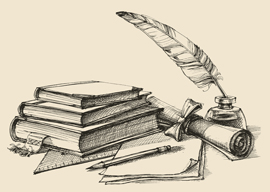
January 06, 2018

Source: Bigstock
Having established that writing the first thing that supposedly comes into your head—you have either to write very fast or think very slow to keep it up—is the way to find out who you are, another idea derived from psychoanalysis, whose baleful influence lingers in our culture like the smell of teargas after a riot, makes its appearance in the advice to the journaler about what to write about. “Remember or analyse [your] dreams.”
So when this morning I woke having dreamt that I needed to go to the lavatory and discovered, on waking, that I really did need to go to the lavatory, writing this dream down would have helped me to discover its true, as against its superficial, meaning; for surely only a very literal-minded person would associate or identify my dream wholly with a full bladder?
The notions that our casual thoughts are worthy, without editing, of record, because they must be important and revealing in a way that effortful thoughts are not, and likewise that our dreams must contain deep significance, are flattering to our self-importance. This is the primrose path to egotism and self-absorption. I am not, of course, against self-examination; to know yourself was, after all, the wise injunction inscribed over the entrance to the Temple of Apollo at Delphi. A case could be made for the widespread absence of such knowledge being responsible for much evil in the world. But the idea that the difficult and painful achievement of self-knowledge is to be assisted or furthered by stream-of-consciousness journaling and the recording of one’s dreams is a legacy of one of the greatest misleaders of humanity, admittedly because humanity usually wanted to be misled: Sigmund Freud.